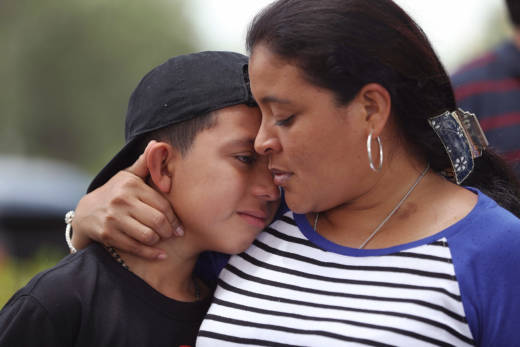The Trump administration says it will end the temporary protected status that has allowed some 200,000 natives of El Salvador to live in the U.S. without fear of deportation for nearly 17 years, the Department of Homeland Security said.
In announcing the designation's end, DHS Secretary Kirstjen M. Nielsen also said she's extending it for another 18 months to Sept. 9, 2019 — a delay that her agency said was to ensure "an orderly transition."
When asked whether the move would result in U.S. customs officials targeting Salvadorans who try to remain in the U.S. without documentation after September 2019, an administration official on a briefing phone call said the agency's top priority remained the deportation of criminals and people deemed dangerous to society. But he added that Homeland Security would not "exempt entire classes of people."
The move upends a status quo that has existed since 2001, when President George W. Bush extended temporary protected status to Salvadorans who were in the U.S. after major earthquakes devastated parts of El Salvador.
As NPR's Carrie Kahn reports, "The vast majority of [Salvadorans] that were here in the country living illegally at the time had fled in the 1980s and '90s, during the decades of the U.S.-backed civil war in the country and unrest there."
